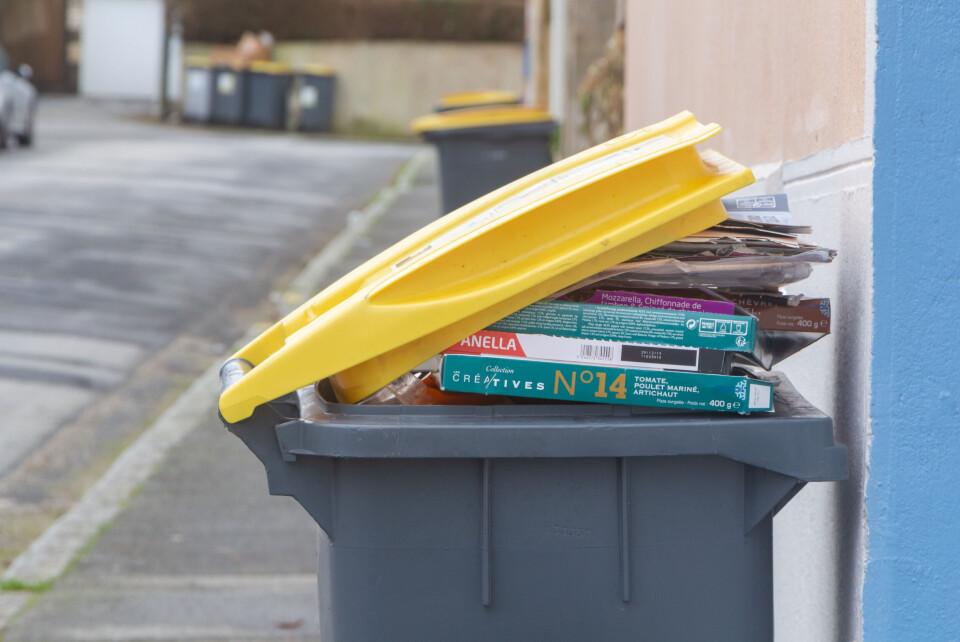-
Top Paris restaurants to sell off 20,000 tableware items
Pieces set to go on sale include glassware, cutlery, and silverware, as well as bistro tables and chairs. Money raised will go in part to charity
-
2025 world economy rankings: France classed above the UK and US
France’s low inflation rate helped it beat many other nations
-
Speed, alcohol, drugs: French ski resorts take action
Behaviour of some skiers a cause for concern as severity of injuries worsens
Do not be fooled by ‘compostable’ plastic, says French consumer group
Recycling, reusing or reducing consumption of plastic is better, according to UFC-Que Choisir

A French consumer group has warned so-called ‘compostable’ plastic does not help limit pollution as much as people have been led to believe.
UFC-Que Choisir said consumers should be aware that plastic dubbed ‘compostable’ will not biodegrade outside of compost heaps or of “precise industrial conditions” and still constitutes pollution if discarded on beaches or in the woods, for example.
“Faced with this major pollution problem, compostable plastic packaging seems to be a good idea at first,” it said. “But in reality, it’s not that simple.”
The group referred to the French agency for ecological transition, Ademe, which said: “Plastic, even a compostable kind, is still plastic.”
It also highlighted Ademe's research that concluded: “Half of the objects found on beaches in the European Union are single-use plastic objects, especially packaging and containers.”
‘Be careful not to confuse composting and recycling’
UFC-Que Choisir added consumers must be careful not to “confuse composting and recycling”. It said that compostable plastic still emits carbon dioxide or methane when it degrades. Both of these are powerful greenhouse gases.
It said compostable plastic is not the same as biodegradable products (such as those often used for food containers) and does not have any fertilisation value for plants.
UFC-Que Choisir highlighted Ademe only believes that compostable plastic has one truly relevant use: when used as a container for green waste. For example, compostable bags used for collecting food waste or coffee capsules made from more than 95% paper.
Ademe states: “Choosing compostable plastic packaging is not a solution to the environmental pollution caused by plastics.”
Gaelle Haut, EU affairs coordinator at Surfrider Foundation Europe, told AFP: "People tend to believe they're contributing to the protection of the planet while buying these products, but it's not at all the case.”
Read also: How to recycle in France: Seven common questions answered
What is the difference between compostable and biodegradable?
UFC-Que Choisir said:
-
Compostable: Biodegrade under composting conditions that meet specific standards, but not in the natural environment.
-
Biodegradable: Decompose via micro-organisms, into CO2 or methane, and possibly into by-products (residues, biomass).
-
Biosourced: Made up in whole or in part of polymers derived from biomass (all living organisms, e.g. plant, animal, bacterial). Compostable plastic is not necessarily bio-sourced and vice versa. Some may also still contain some fossil fuel-derived products.
-
Recyclable: Can be reused in another form or another product.
Biodegradable plastics break down faster than compostable ones, but both need to be disposed of properly to give them the best chance of breaking down safely. If not, they will end up in landfill centres or in nature, just as normal plastic does.
And normal plastic does not ever really break down. It instead becomes microplastic, which is known as a ‘forever pollutant’, and has been found in oceans, food products, soil, tap water, and even human blood and breast milk.
What should consumers do instead?
The consumer group recommended several tips.
-
Reuse packaging where possible (e.g. returnable bottles)
-
Recycle as much packaging as possible, rather than composting it
-
Reduce your consumption of packaging of any kind, by eliminating it (bulk) or reusing it (deposit)
Read also: How to cut down on yoghurt pot plastic pollution
It also advised:
-
Put packaging in the yellow recycling bin, even if it is labelled ‘compostable’ or ‘biodegradable’. (From January 1, 2023, all packaging must be thrown away in selective sorting bins).
-
In areas where the local authority provides the right waste collection service, only compostable plastic bags or coffee capsules made of 95%+ paper should be disposed of as biowaste
-
If you have a voluntary collection point or home composter, do not put any plastic in it, even if they are labelled as ‘compostable’ or ‘biodegradable’.
Read more: Change to recycling rules in France and what can go in yellow bins
It comes after the European Commission said in November that "biodegradable plastics must be approached with caution”
"They have their place in a sustainable future, but they need to be directed to specific applications where their environmental benefits and value for the circular economy are proven,” it said.
Related articles
How does recycling work in France?
US firm to build ‘hard-to-treat’ plastic recycling plant in France
























